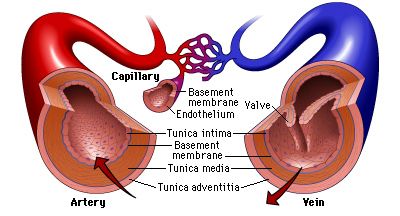Information technology (IT) is a growing industry. Many businesses require specialists to assist in the development and maintenance of their computer hardware, software and networking systems. By learning about various Red Hat programs and certifications, you can specialize your IT skills and improve your chances of achieving success in this field. In this article, Pritish Kumar Halder explains what Red Hat certifications are and why they are important, outline the various types, list important skills for Red Hat professionals and share tips to improve them, highlight them in your job application, and apply them in the workplace.
What Are Red Hat Certifications?
Red Hat certifications are credentials that enable professionals, teams, and organizations to demonstrate they possess the skills necessary to remain up to date with evolving technology. Red Hat offers various levels of certification programs, most of which focus on system administration. If you want to further your career or skills, Red Hat credentials are helpful. They cover a wide portfolio of technologies, instilling confidence in your expertise. They include enterprise architectural qualifications, fundamental Linux system administration abilities, and developer knowledge of specialized frameworks or upcoming technologies, such as containers and the cloud.
Why Are Red Hat Certifications Important?
As an IT professional, you may encounter organizations that use Red Hat software. Red Hat is an open-source software provider for many businesses and industries. The following are some organisations that use it:
-
Health care companies
-
Internet service providers
-
Airlines
-
Commercial banks
Red Hat is best known for Red Hat Enterprise Linux, which offers an open technological stack that users can customise to fit their needs. Because of its reputation and popularity, there is a significant demand for qualified IT professionals who can work with the Red Hat technological stack. A Red Hat Certified Professional credential can help you pursue professional opportunities and progress your career. It also gives you access to Red Hat Certification Central, which allows companies to search for and verify certified candidates.
Types Of Red Hat Certifications
There are many types of Red Hat courses and certifications. Most are supplementary materials for the core programmes. Red Hat also provides training classes for certification exam preparation. Here are the most in-demand certificates:
Red Hat Certified System Administrator (RHCSA)
The RHCSA certification is suitable for Red Hat administrators with extensive expertise. Besides being a prerequisite for RHCE certification, it is a mandatory requirement by many employers. There are multiple suggested RHCSA training courses. Red Hat System Administration I (RH124) and Red Hat System Administration II are suitable for Windows system administrators (RH134). Linux or UNIX administrators can take the RHCSA Rapid Track Course (RH199).
Red Hat Certified Engineer (RHCE)
Senior system administrators with extensive expertise can consider getting this certification. You require an RHCSA certification before applying for the RHCE programme. Red Hat recommends several training courses based on candidates’ abilities and experience. To prepare for the exam, Windows administrators with limited familiarity with Linux systems can complete Red Hat System Administration I, II and III (RH124, RH134 and RH253).
Red Hat Certified Architect (RHCA)
The RHCA certification is the most prestigious Red Hat credential. Depending on your area of specialisation, you can get the RHCA certification via several combinations. The following are the two RHCA credentials:
-
RHCA in Enterprise Applications for Red Hat Certified Enterprise Microservices Developer (RHCEMD) or Red Hat Certified JBoss Developers (RHCJD)
-
RHCA in Infrastructure for RHCE
RHCE in Red Hat OpenStack
The RHCE in Red Hat OpenStack certification is suitable for IT professionals with experience with Red Hat virtualisation and cloud technologies. To qualify for this certification, candidates require a passing grade in the RHCSA exam (EX210). They also require a passing grade in the Red Hat Certified System Engineer in Red Hat OpenStack exam (EX310), which is a three-hour exam.
Important Skills For Red Hat Certified Professionals
Red Hat certified professionals require technical skills and knowledge. Here are some key skills and areas of knowledge they often have:
OpenShift
OpenShift is a container platform that helps run applications smoothly and scale cloud-based services. It covers areas such as container deployment, containerised application development, container storage management and the use of automated DevOps pipelines. OpenShift expertise increases a team’s efficiency in IT infrastructure.
Cloud computing
The prevalence of cloud technology, which enables remote access to data on a computer or network, is increasing. It is a very adaptable tool, as it allows employees to collaborate from different places, access crucial files when away from the workplace and create backups of important data. Many businesses employ a cloud network, and a Red Hat professional requires the ability to access networks to diagnose issues and maintain functionality for remote teams.
Coding
A Red Hat specialist requires a comprehensive understanding of computer programming and network languages. Coding abilities enable them to perform crucial network debugging when issues arise. They may also use coding skills to write scripts that automate activities to improve the efficiency of daily operations.
Ansible
Ansible is an open-source automation suite that automates provisioning, configuration management, application deployment and orchestration, among many other IT activities. It is useful for both novices and specialists who wish to study more complex automation concepts. These comprehensive capabilities enable professionals to increase productivity and efficiency.
Tips To Improve Your Red Hat Skills
Here are some tips for developing and improving your Red Hat professional skills:
Practice
It is important to practice a skill to improve your ability to apply it effectively in the workplace. Each week, schedule a time to work on a skill. It may also be beneficial to ask others for help in practising your skills. For instance, if you want to enhance your container deployment abilities, you can look online for complex challenges to solve.
Monitor your progress
When developing any technical skill, it is important to track your progress to ensure you are improving consistently. Set measurable goals to help you track your progress. For instance, if you want to enhance your security awareness, you can set a goal of reading three weekly newsletters from top security magazines.
Ask for feedback
As many Red Hat professionals work in teams, it is helpful for them to receive feedback from their colleagues to carry out their responsibilities effectively. You can have a trusted friend, employee or mentor evaluate your technical skills to see where you can improve. Alternatively, conducting anonymous in-person surveys with your team can help you learn more about the skills you already have and those that may require improving.
Red Hat Skills In The Workplace
The following are some common areas where you may apply your Red Hat skills in the workplace:
-
Kubernetes administration with Red Hat OpenShift
-
Linux and network device automation using Ansible
-
Container application development
-
Cloud deployment using Red Hat OpenStack
-
Linux container deployment and management
-
DevOps pipeline development using Jenkins and Git
How To Highlight Your Red Hat Skills
Here are a few tips to help you demonstrate your Red Hat skills during the job application process:
On your resume
On your resume, you can highlight your skills in your professional summary, work experience and skills sections. Explain how you used your skills in previous roles or internships. Keep the skills list brief, and only include skills that are relevant to the job you are applying for, particularly those in the job description.
In your cover letter
You can emphasize your most relevant skills in your cover letter to distinguish yourself from other candidates. Mentioning one or two skills along with valid credentials is most effective. If you have a certification, have received an award for your performance or have worked on projects that highlight your skills, consider mentioning them.
In your job interview
Review the job description when preparing for the interview to identify what skills and keywords match your experience and skills. Then, think about examples from your work experience that relate to those skills that you can highlight in the interview. For example, if the interviewer asks about your problem-solving skills, you can respond with an instance where you applied your skills to implement a solution to a critical problem.
Reference: https://in.indeed.com/career-advice/career-development/red-hat-certification









